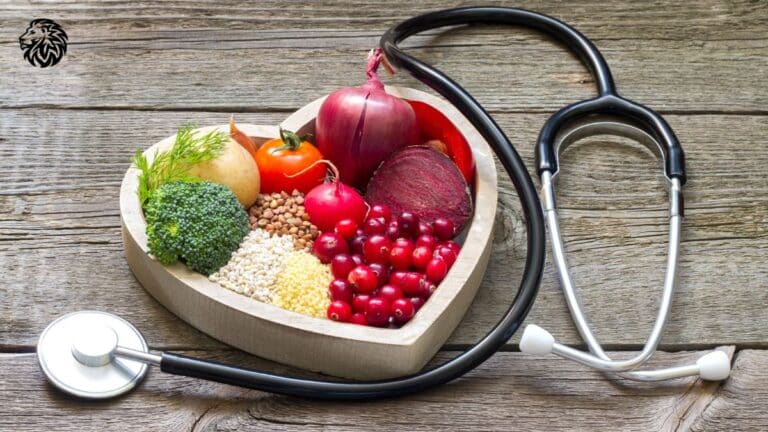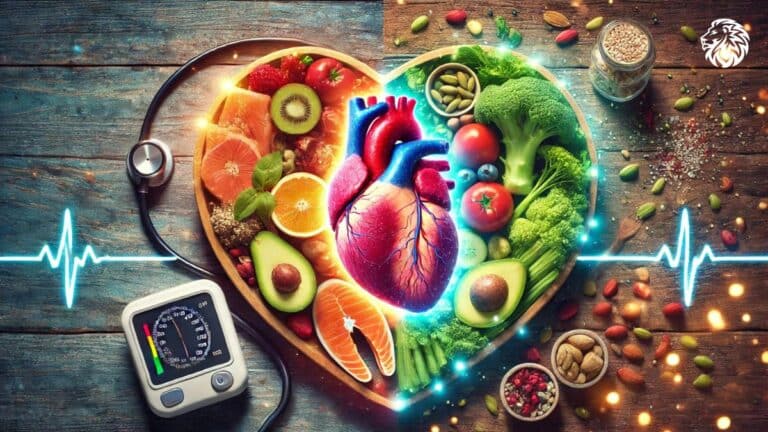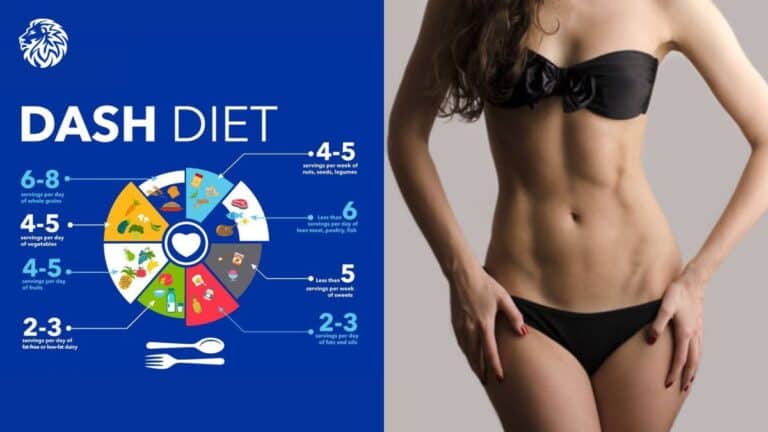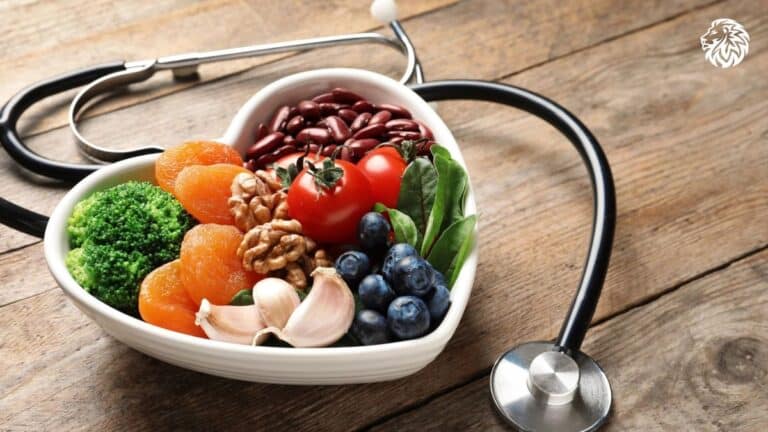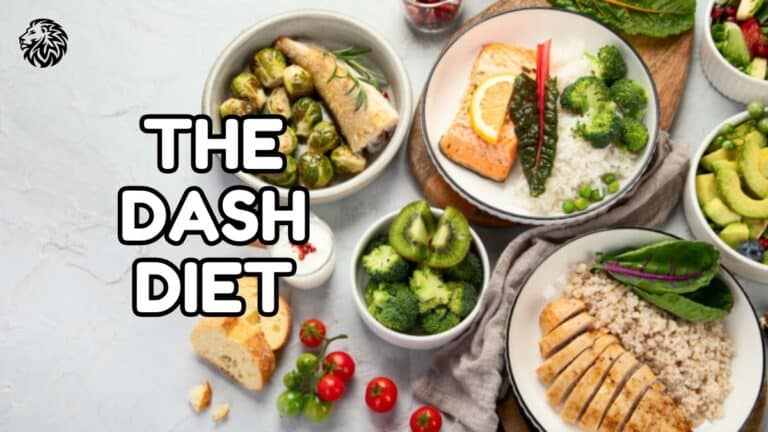The DASH (Dietary Approaches to Stop Hypertension) diet is widely known for helping manage blood pressure, but it also offers potential benefits for people with kidney disease. Kidney health is deeply connected to diet, and what you eat can either support or strain your kidneys. Let’s explore how the DASH diet might fit into the picture for those managing kidney disease.
What Is the DASH Diet?
Before diving into its potential effects on kidney health, it’s essential to understand the DASH diet’s core principles. The DASH diet emphasizes:
- Fruits and Vegetables: These are central to the DASH diet, providing essential vitamins, minerals, and fiber.
- Whole Grains: Foods like brown rice, quinoa, and whole wheat pasta are preferred over refined grains.
- Lean Proteins: The diet encourages lean protein sources such as chicken, fish, and plant-based options like beans.
- Low-Fat Dairy: Low-fat or fat-free dairy products provide calcium and protein while keeping saturated fat low.
- Healthy Fats: Healthy fats from nuts, seeds, and certain oils (like olive oil) are emphasized.
- Reduced Sodium: Limiting sodium intake to help control blood pressure is a key component of the DASH diet.
These principles aim to reduce blood pressure, improve heart health, and promote overall well-being. But how does this fit with kidney disease?
Understanding Kidney Disease
Kidney disease is a condition where the kidneys lose their ability to function properly. They struggle to filter waste, balance fluids, and regulate essential minerals. When this happens, waste and toxins build up in the body, which can lead to serious health problems.
There are two primary stages of kidney disease:
- Early-Stage Kidney Disease: This is when kidney function starts to decline, but the kidneys can still work well enough with proper management.
- Late-Stage or End-Stage Renal Disease (ESRD): At this stage, the kidneys can no longer function without dialysis or a kidney transplant.
Diet plays a crucial role in managing kidney disease. Foods that support heart health, manage blood pressure, and reduce the workload on the kidneys are particularly important. So, where does the DASH diet fit in?
Benefits of the DASH Diet for Kidney Disease
- Blood Pressure Control
High blood pressure is one of the leading causes of kidney disease. Over time, elevated blood pressure damages the delicate blood vessels in the kidneys, impairing their ability to filter blood properly. The DASH diet, originally designed to lower blood pressure, can help manage or prevent further damage to the kidneys.
By following the DASH diet’s reduced sodium guidelines and consuming more potassium-rich foods (like fruits and vegetables), you may help keep blood pressure in check, thus protecting kidney function.
- Heart Health and Kidney Disease
Kidney disease and heart disease are closely linked. When the kidneys are not working well, the heart has to work harder, which increases the risk of cardiovascular issues. The DASH diet’s emphasis on heart-healthy foods—such as fruits, vegetables, and whole grains—can help reduce cholesterol levels and lower the risk of heart disease. By supporting heart health, you’re also indirectly supporting kidney health.
- Reducing the Risk of Diabetes
Diabetes is another leading cause of kidney disease. People with diabetes must carefully manage their blood sugar levels to prevent complications. The DASH diet includes complex carbohydrates like whole grains, which can help stabilize blood sugar. Additionally, its focus on balanced meals and nutrient-dense foods can support overall metabolic health.
Preventing diabetes or controlling existing diabetes is a critical aspect of kidney disease management, and the DASH diet offers practical tools for doing so.
- Weight Management
Maintaining a healthy weight is important for kidney health. Excess weight can increase the risk of high blood pressure, diabetes, and other conditions that harm the kidneys. The DASH diet promotes nutrient-dense foods that are filling without being calorie-dense. By following this eating plan, you may find it easier to maintain or achieve a healthy weight, which can reduce stress on your kidneys.
Adjustments for People with Kidney Disease
While the DASH diet provides numerous benefits, people with kidney disease need to make specific adjustments. The kidneys regulate potassium and phosphorus levels in the body, and when they aren’t functioning properly, these minerals can build up to dangerous levels. Here’s what to consider:
- Potassium
The DASH diet encourages potassium-rich foods like bananas, potatoes, and spinach. While potassium helps manage blood pressure, too much potassium can be harmful for people with kidney disease. If you’re in the later stages of kidney disease, you may need to limit high-potassium foods. Consult your healthcare provider to determine the appropriate amount of potassium for your diet.
- Protein Intake
In early-stage kidney disease, moderate protein intake is beneficial. However, as kidney disease progresses, you may need to reduce protein intake. Too much protein can overwork the kidneys as they try to process it. The DASH diet typically includes moderate amounts of protein, but adjustments may be necessary based on your kidney function.
- Phosphorus
Dairy products, nuts, seeds, and certain grains can be high in phosphorus, which is another mineral that needs to be limited in later stages of kidney disease. Excess phosphorus can lead to weakened bones and other complications. Low-fat dairy and whole grains are emphasized in the DASH diet, but you may need to select specific low-phosphorus options if you have advanced kidney disease.
- Sodium
For those with kidney disease, sodium restriction is especially important. The DASH diet already limits sodium, but depending on your stage of kidney disease, you may need to reduce sodium even further. Aim for fresh, whole foods, and avoid processed or packaged items, which tend to be high in sodium.
The Importance of Personalization
Every individual’s kidney health journey is different. The DASH diet provides a solid foundation for improving overall health, but people with kidney disease must tailor the plan to fit their needs. Working with a healthcare provider or a dietitian specializing in kidney health can help you make the necessary adjustments to protect your kidneys while still benefiting from the DASH diet’s heart-healthy principles.
Conclusion
The DASH diet can be a good choice for people with kidney disease, particularly in the early stages. It helps manage blood pressure, supports heart health, and provides a framework for a balanced, nutritious diet. However, adjustments may be necessary to account for potassium, phosphorus, and protein needs, especially as kidney disease progresses. Always consult with your healthcare team to ensure that your diet supports both your kidney health and your overall well-being.
By making informed food choices, you can play an active role in managing kidney disease and protecting your kidney function. The DASH diet offers a well-rounded approach that, when personalized, can support you on your journey to better health.
Frequently Asked Questions (FAQs) about the DASH Diet
1. Can people with kidney disease follow the DASH diet?
Yes, people with early-stage kidney disease can follow the DASH diet with some modifications. Since the diet is high in potassium and phosphorus, individuals with more advanced kidney disease may need to reduce their intake of certain foods. Always consult with your healthcare provider to customize the plan according to your specific needs.
2. How does the DASH diet help with kidney disease?
The DASH diet helps manage blood pressure, which is crucial for protecting kidney health. It also promotes heart health and weight management, both of which can reduce the risk of further kidney damage.
3. Should I avoid high-potassium foods if I have kidney disease?
If you are in the early stages of kidney disease, potassium-rich foods like bananas, spinach, and potatoes can be part of your diet. However, if you have more advanced kidney disease, you may need to limit your potassium intake to avoid complications. A healthcare provider can guide you on the appropriate levels.
4. How much protein should I eat on the DASH diet if I have kidney disease?
In the early stages of kidney disease, moderate protein intake is usually recommended. As kidney disease progresses, protein intake may need to be reduced to avoid overburdening the kidneys. Your dietitian can help you determine the right amount for your condition.
5. Is the DASH diet low in sodium?
Yes, the DASH diet emphasizes reduced sodium intake to help manage blood pressure. This can be beneficial for people with kidney disease, but the level of sodium restriction may need to be stricter, depending on your kidney function.
6. What are the best foods on the DASH diet for kidney health?
Fruits, vegetables, whole grains, and lean proteins are generally beneficial for kidney health. However, those with kidney disease should focus on low-potassium fruits and vegetables, moderate protein intake, and avoiding high-phosphorus foods if needed.
7. Are there any risks in following the DASH diet if I have kidney disease?
The primary risks involve the intake of potassium, phosphorus, and protein, which may need to be limited as kidney disease progresses. Working with a healthcare provider to tailor the DASH diet can help avoid these issues and ensure it supports your kidney health.
8. Can the DASH diet prevent kidney disease?
The DASH diet may help reduce the risk of developing kidney disease by managing risk factors like high blood pressure and diabetes. By promoting heart health and encouraging a balanced, nutritious diet, the DASH diet can contribute to overall kidney health.
9. Do I need to limit dairy on the DASH diet if I have kidney disease?
Low-fat dairy is a part of the DASH diet, but dairy products are high in phosphorus. People with advanced kidney disease may need to limit or choose lower-phosphorus alternatives.
10. How can I safely follow the DASH diet with kidney disease?
Work with your doctor or a registered dietitian to modify the DASH diet according to your needs. Regular monitoring of blood pressure, potassium, phosphorus, and protein levels will help you follow the diet safely while protecting your kidneys.
References
- National Kidney Foundation. (n.d.). DASH diet. National Kidney Foundation. https://www.kidney.org/kidney-topics/dash-diet
- National Kidney Foundation. (n.d.). Tips for tackling the DASH diet. National Kidney Foundation. https://www.kidney.org/kidney-topics/tips-to-tackling-dash-diet
- Patel, K. (2022, February 16). Does the DASH diet work for kidney disease? Verywell Health. https://www.verywellhealth.com/dash-diet-for-kidney-disease-does-it-work-part-1-of-2-2085845
- Appel, L. J. (2019). The DASH diet and kidney health: A review of the evidence. Kidney International, 95(4), 1027-1036. https://www.kidney-international.org/article/S0085-2538(19)30168-1/fulltext

